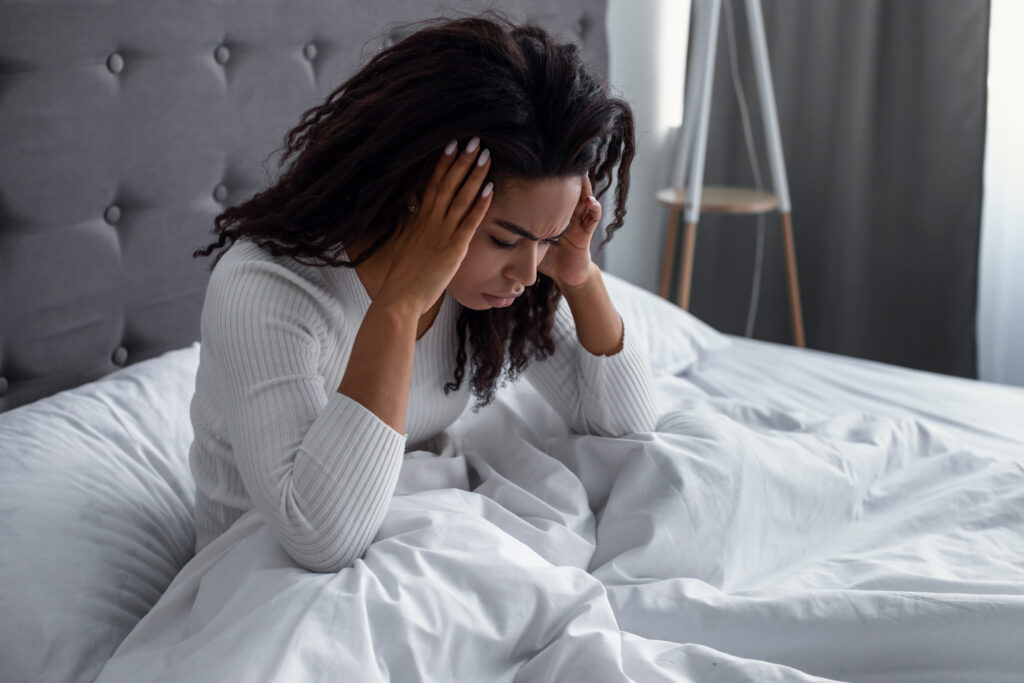
75% of People Who Get Migraines are Women
- Migraines often affects people ages 15 to 55
- Migraines are less severe and less frequent with age
- 30 Million in the US, and 1 Billion worldwide get migraines
What Causes Migraines?

- Most researchers think that migraines are due to changes in levels of substances that are naturally produced in the brain
- Increase in substance levels can cause inflammation
- Inflammation then cause brain blood vessels to swell and press on nerves causing pain
Common Triggers in Women
- Too little or too much sleep
- Skipped meals
- Bright lights
- Loud noises
- Strong odors
- Menstrual cycle hormone changes
- Stress and anxiety
- Weather changes
- Alcohol (often red wine)
- Caffeine (too much or withdrawal)
- Foods with nitrates (hot dogs and lunch meats )
- MSG (monosodium glutamate)
- Foods with tyramine (aged cheeses, soy products, fava beans, hard sausages, smoked fish, and Chianti wine
- Aspartame (NutraSweet® and Equal®)

Cardiogram Migraine IQ module can help you pinpoint your triggers.
Use Daily Log feature in Migraine IQ.
Menstrual Migraines
- 50%+ migraines in women occur close to their period
- Just before the cycle begins, female hormone levels of estrogen and progesterone go down sharply. This may trigger a migraine, because estrogen controls chemicals in the brain that affect a woman’s pain sensation
- 2/3rds of women report that their symptoms improve with menopause
- Nausea and vomiting usually decrease with age
Birth Control Pills Improve Migraines In Some Women
- Birth control pills may help reduce the number of attacks
- Migraine attacks usually become less severe for some, but not for all women using the pills
Healthy Habits that Can Reduce Migraine Episodes
- Avoid or limit triggers (Migraine IQ can help you understand your triggers)
- Wake up and go to sleep at the same time every day
- Eat healthy foods
- Do not skip meals
- Engage in regular physical activity
- Limit alcohol and caffeine intake
- Learn ways to reduce and cope with stress
Share with Doctor Report (Coming Soon)

Share with Doctor feature will generate a personalized PDF report for you. Your individualized report will provide specific information that might help your doctor and will include:
- Frequency of your migraines
- Location and severity of pain
- How long the headaches last
- When the headaches happen – such as during your period
- Other symptoms, such as light or sound sensitivity and/or nausea and vomiting
- An insight into your specific triggers
- A log of headache medicines you took to either prevent getting the migraine or to alleviate pain

